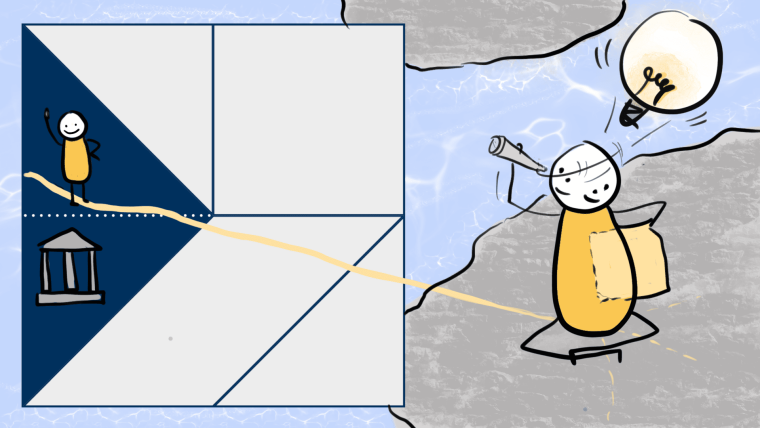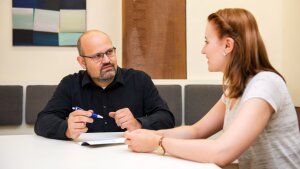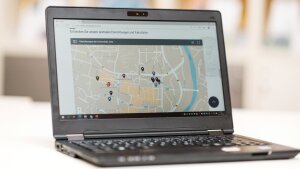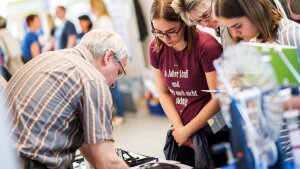
Who am I and what do I want?
My interests:
- What am I interested in?
- What problems would I like to solve in the world?
- How do I spend my free time?
- What kind of books or magazines do I read?
- What kind of films do I watch?
- What do I look up on the Internet?
- What are my favourite subjects at school?
My skills:
- What am I good at?
- What are my natural abilities?
- Where am I successful?
My values and goals:
- Where do I see myself in 10 or 20 years?
- What values, professional objectives and personal goals are important in my life?
- How much do I want to earn? What is important to me in life?
My knowledge and gaps in my knowledge:
- What would be my dream job? What do I know about possible study and career paths and current opportunities on the job market?
- How do I envisage my dream job?
What and where do I want to study?
When choosing a degree subject, it might be a good idea to work from the general to the specific. If you are not yet completely sure, you might like to get a feel for various degree programmes in different fields of study. There are useful tools for this, such as the Higher Education CompassExternal link or studienwahl.deExternal link.
Where you study is also important! Some degree programmes are only offered at a few institutions, and even undergraduate programmes (e.g. Mathematics, Psychology and Business Administration) have different focuses from university to university. And every city naturally has its own flair and qualities.
If you are sure you want to study in Jena, you can filter our range of degree programmes de by groups of subjects or faculties – you might even find subjects you have never heard of.
Studying - how does that even work?
Screenshot: Sophie BartholomeWhat should you know about studying?
Types of degree:
Bachelor’s: A bachelor’s programme is usually the first part of a multi-cycle degree programme at an institution of higher education. The standard length of most bachelor’s programmes is six semesters.
Master’s: A master’s programme usually lasts two to four semesters and complements an undergraduate degree programme (most commonly a bachelor’s degree). The aim is usually to broaden and expand your academic knowledge acquired during the undergraduate degree programme.
State examination: A state examination opens up access to certain occupations that are regulated by the German government (e.g. doctors, pharmacists, lawyers) or to civil service (e.g. judges, public prosecutors). The final examinations are monitored by a German state authority (respective examinations office).
Teacher training for lower and intermediate secondary schools or grammar schools (Regelschule or Gymnasium): A teacher training programme at our University comprises a combination of two subjects and educational science. Prospective students have to prepare for their future career by undertaking a work placement (240 hours) before their studies or by the third semester at the latest. Students graduate from teacher training programmes with a ‘first state examination’.
Doctorate: A doctorate is awarded on the basis of specialized, independent and original academic achievements.
Of course, other aspects are also important! ...
- What are my chances of getting accepted?
Information on applications, admission restrictions and more - What is it like to live in Jena?
Leisure and living in Jena - How and where can I live?
Living in Jena - How can I finance my studies?
Information on financing your studies








